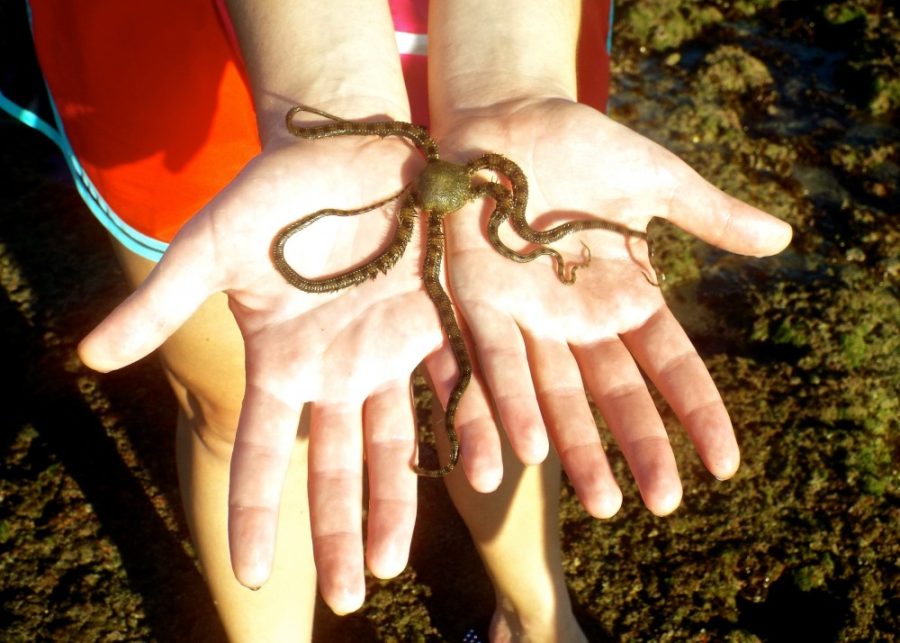UA marine biology students, along with instructor Dr. Katrina Mangin, director of science education and outreach for the Department of Ecology and Evolutionary Biology, went on a field trip to Puerto Peñasco, Mexico, on April 8-10 to experience marine life.
The Gulf of California, also known as the Sea of Cortez, is considered a hotspot of biodiversity by conservation organizations across the globe. It is one of the most active seas in the world and many endemic species live in the northern part of the gulf.
It has one of the biggest tides in the world, so visitors can see various species without actually having to snorkel. The UA is the closest American university to this diverse area.
Students explored tide pools, observed sea slugs and even witnessed sea hares laying eggs on the first night. The group went to Cholla Bay, an extensive sand flat, on their second day.
Visitors can walk half a mile or so out to the middle of the bay during low tide to see octopuses in empty shells.
Students also visited a peaceful estuary site and witnessed flowering plants that live in salt water. Students also had the opportunity to go to town for meals and see the fish market.
Students had the chance to see an octopus hold onto her eggs and watch the baby octopuses hatch and change colors. Some crawled and some even inked.
Sightings like these made the marine ecology experience come alive.
“It is important to have that hands-on experience with the real habitat to see animals and the ocean when you are in a marine biology course,” Mangin said. “We are only five hours away from the ocean so it seems really worth it.”
For many students, the trip highlighted the importance of conserving the environment. Upon actually seeing the marine life, people understand the importance of environmental protection efforts.
“Marine conservation is important because it supports a huge diversity of life, provides a large amount of oxygen and absorbs harmful carbon dioxide for our planet,” said Nicole Fischer, a graduate teaching assistant for the course.
In addition to leading a field trip to Mexico, Mangin directs long-term study abroad programs in marine ecology, including a summer trip to the Galapagos Islands.
Follow Varuska Patni on Twitter.









